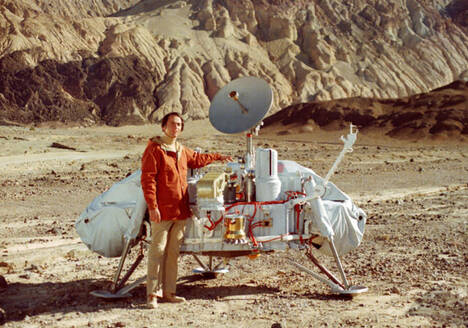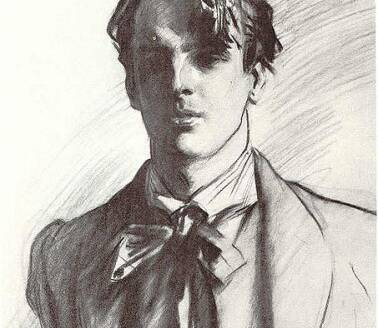Marijuana and the Enhancement of Episodic Memory
„A memory is a beautiful thing, it’s almost a desire that you miss.“
Gustave Flaubert, French writer (1821-1880)
Our memory is simply amazing. We can store information about thousands of situations but also abstract knowledge, theories, learned routines as well as practical skills like ice-skating or driving a car. Our memory keeps relevant information poised to meet our daily needs and plans, enables us to recognize people and places, and facilitates remembering past events. With its various functions, memory constitutes the cognitive basis for our personal identity, our decision-making, our present actions, and our attitude toward the future. Our memory defines who we are. Memory is everything.
Short-Term Memory Disruptions
When it comes to marijuana and its acute effect on memory during a high, many people think only of the infamous disruptions of our short-term (or “working space“) memory during a high. The effect is nicely described in Jack Margolis’ and Richard Chlorfene’s book “A Child’s Garden of Grass“ in a short conversation between two very stoned consumers:
Virginia: Are you hungry?
Andy: No. (Long reflective pause). Wait a minute. Did you mean am I hungry for food, or am I hungry in the abstract, like hungry for knowledge or adventure?
Virginia: What were we talking about?
Andy: You asked if I were hungry.
Virginia: Did I?
Andy: Yes.
Virginia: Well, are you?
Andy: Am I what?
When using various kinds of marijuana, it is fascinating to see how much this disruptive effect on short-term memory depends not only on the dosage used but also on the type of marijuana and the route of administration. A freshly harvested and well-fermented variety with higher levels of the terpene pinene consumed with a vaporizer may bring almost no such disruptions, and experienced users often enjoy its high for hours of discussion or other activities without experiencing short-term memory problems.
Enhancement of Episodic Memory Retrieval
On the other hand, many marijuana users have consistently reported an enhancement of what cognitive scientists have called “episodic memory” or “autobiographical memory”. From these reports we know that during a high, users can often retrieve long-forgotten episodes of their lives, or have a much more vivid recollection of past events than usual. According to Yawger, the philosopher John Stuart Mill (1806 – 1873) mentioned the memory-enhancing effect of cannabis:
“John Stuart Mill … wrote of (cannabis’s) power to revive forgotten memories, and in my inquiries, smokers have frequently informed me that while under the influence, they are able to recall things long forgotten.”[1]
In the last few decades, scientists have almost completely ignored these reports, presumably because government funds were given mainly to research only the negative effects of marijuana. Yet, there are so many detailed reports about enhanced episodic memories that it seems outrageous to scientifically ignore this phenomenon for so long. On Lester Grinspoon’s website marijuana-uses.com, a 19-year-old computer programmer “Mackenzie Cross” writes in his piece “What I like about Marijuana”:
“Memories seemed to force themselves upon me, very rapid but very gentle. I started to remember things in my childhood that made me truly happy and joyful. Things I had either forgotten or just simply didn’t give the time of day to. I remembered raising my hands up as a signal for my mother that I wanted to be carried and the utter joy I felt when she would reach down and pull me up to her chest. I realized how much she really did, in fact, love me when I remembered how I longed for her goodnight kisses, of which never ran dry.“
Likewise, Jeremy Wells, a 24-year-old undergraduate student of history, tells us about the recollection of childhood memories during a high in his report “Four Leaf Clovers”, featured on the same website:
”Recently I was visiting with a relative who has a two-year-old baby girl, and we were looking for four-leaf clovers. So here I was, a 24-year-old man on my hands and knees, combing through the grass and screaming, “over here I found one”. Actually we found several and I think we were probably more excited than the kid. See children have a way of doing that to you. Through them you can vicariously relive your childhood. In the name of “playing with the kids” you can shed your inhibitions and do the things you used to take for granted. You look at the world through a different set of eyes. It alters your worldview. In the course of reflecting on my four-leaf clover (of course, I kept one) I began to think of all the things you used to do as a kid, and how everything holds wonder and magic for children.“
Episodic Memory, Introspection, and Empathy
These two reports also show that the more vivid retrieval of a past episode in one’s life during a marijuana high often brings back not just the episode as such, but also our personal stance and feelings at the time. Enhanced episodic memory during a high could be at least a partial explanation as to why many marijuana users report introspective, as well as empathic, insights into others. If you have better access to the person you used to be in various phases of your life, you will have a better understanding of how you became who you are now – which aspects of you have changed, where you have made progress, and where you have not. And if you remember better how you felt as a kid, you will have more understanding of children and their needs, fears, and hopes, from their perspective.
Our episodic memory is crucial in its functioning for introspection and empathy, but also for many other kinds of cognitive activities. The phenomenon of enhanced episodic memory during a marijuana high has been reported so often by users for centuries that it deserves a closer look from psychologists and cognitive scientists.
We now know that our episodic memory relies on activities in the frontal cortex and the hippocampus. Both regions of the brain contain cannabinoid receptors that belong to an endocannabinoid signaling system and also react to the consumption of THC. So far, however, we do not know if there is any kind of direct way in which marijuana consumption enhances episodic memory retrieval and recollection, or if this is an indirect effect. An indirect route could be that a high usually leads to a hyperfocus of attention – this is what I believe to be one of the most basic effects of marijuana – which may lead to a more vivid and intense recollection of an episodic memory on which we focus.
I think it should be obvious that research concerning marijuana and the often observed enhancement of episodic memory will not only pay off for those interested in marijuana but could deliver highly relevant facts about the nature of episodic memory itself, including the possible involvement of the endocannabinoid system.
Flaubert’s Reminder
The French writer Charles Baudelaire wrote his book “The Artificial Paradises” based on his experiences with marijuana and other substances. When he sent his manuscript to his friend Gustave Flaubert (author of “Madame Bovary”) in 1860, Baudelaire received a very warm and admiring response about the many brilliant observations in it. Flaubert had also participated in some meetings in Paris of the “Club of the Hasheesh Eaters” (“Club des Hashishins”), of which Baudelaire was a member. Besides his overall praise for Baudelaire’s observations, Flaubert remarked:
“It seems to me that concerning this subject field, (…) in a work which is the beginning of a science, in a work of scientific observation and inductive reasoning, you emphasize too much (at various places) the spirit of evil. One can feel here and there the sour influence of Catholicism.”[2]
Maybe scientists and politicians today need to overcome the “sour” influence of the flawed thinking behind marijuana prohibition to invest in research that could help so many of us to better understand its temporary enhancing effects on episodic memory.
[1] Yawger, N.S. (1938). “Marijuana: Our New Addiction.” American Med. Sci.,195, p. 353.
[2] Gustave Flaubert in a letter to Charles Baudelaire in 1860, in: Müller, Ulf, and Zöllner, Michael, (ed.) (2002) Der Haschisch Club. Ein literarischer Drogentrip, Tropen Verlag Stuttgart.
This essay has originally been published here:
sensiseeds.com/en/blog/marijuana-and-the-enhancement-of-episodic-memory/


